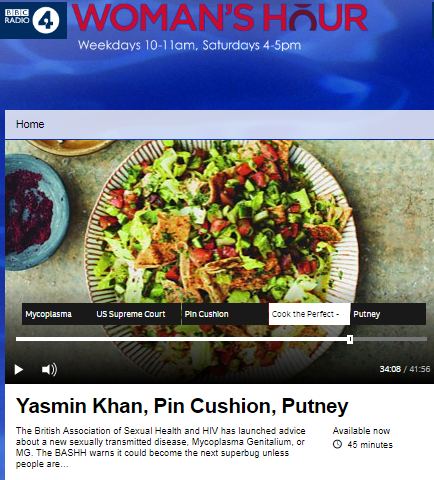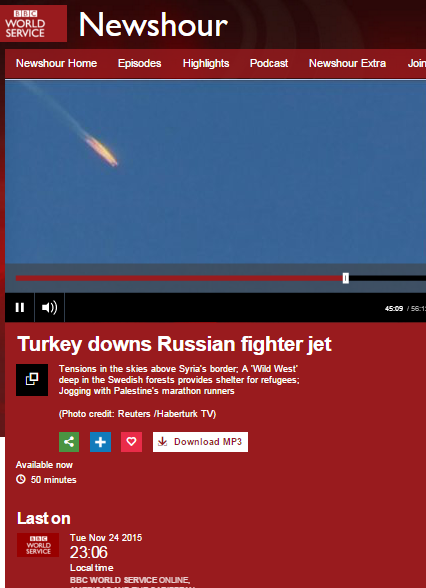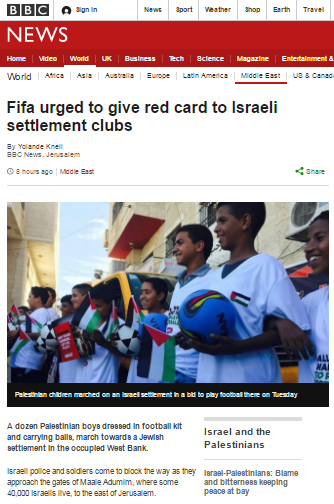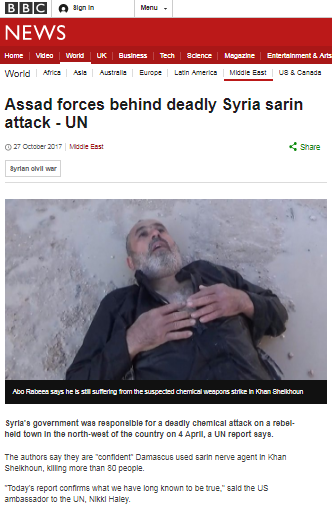h/t CL
Readers may recall that last month we took note of a BBC report in which the programme presenter described an Israeli Arab as ‘Palestinian’ even though the person in question had not identified himself as such.
“According to a study carried out last year by the Israel Democracy Institute just 14% of the Arab citizens of Israel define their primary identity as Palestinian. However, even in the contemporary era of race and gender self-identification, one BBC World Service radio presenter appears to have granted himself the prerogative of deciding how Israel’s Arab citizens should be defined.”
That issue arose again in the July 12th edition of the BBC Radio 4 programme ‘Woman’s Hour’ which included a segment (from 25:48 here) described in the synopsis thus:
“Writer and cook Yasmin Khan’s travels took her from the olive groves of the West Bank and the fruit markets of Jerusalem to the first micro-brewery in Bethlehem [sic]. While breaking bread with the Palestinian people she learnt about the realities of their everyday lives. Yasmin joins Jenni to Cook the Perfect…Fattoush.”
Despite Fattoush being a dish found across the Middle East, in response to a question in the introduction from presenter Jenni Murray, Khan told listeners that “Fattoush is just a classic Palestinian salad”.
Although the BBC Academy’s style guide instructs that “in day-to-day coverage of the Middle East you should not affix the name ‘Palestine’ to Gaza or the West Bank – rather, it is still an aspiration or an historical entity”, listeners heard Yasmin Khan make repeated references to ‘Palestine’.
Khan: “…I thought it was so important to try and use food as a way of sharing stories from Palestine…”
Khan:”…in Palestine the olive tree and, you know, olive oil really represents both Palestinian culture, their connection to the land and every Palestinian has an olive tree kind of in their garden…”
“Every Palestinian”? Really?
Listeners also heard Khan’s politically motivated definition of other people’s identities.
Murray: “So where, apart from Jerusalem where you learned how to make this, did your travels around Palestinian kitchens take you?”
Khan: “Well I went all over really. I visited Palestinian communities in the north of Israel in Acre and Haifa […] then I went over to the Galilee…”
Having stated that she “cooked with refugees in Bethlehem” without listeners being told why there are refugees in a place that has been under Palestinian Authority control for well over two decades, Khan went on:
Khan: “And then I even, you know, found time to have a drink with workers at the Taybeh beer factory…”
The Taybeh brewery is, unsurprisingly, located in Taybeh rather than “in Bethlehem” as inaccurately claimed in the programme’s synopsis.
Murray asked: “Alcoholic beer?”
Khan: “Absolutely. I mean 30% of Palestinians are Christian so you know there’s a wonderful wine industry. They make beers, beautiful arak.”
According to the CIA World Factbook just 1 – 2.5% of the population of the ‘West Bank’ are Christians and in the Gaza Strip Christians make up less than 1% of the population. The “wonderful wine industry” in the Palestinian Authority controlled areas is primarily composed of one winery run by the same family that owns the Taybeh brewery and a winery in the Cremisan monastery.
In response to Murray’s question “how do you define yourself what is actually authentically Palestinian?” listeners heard a reply from Khan which steers readers towards the view that “millennia” old Palestinian cuisine predates other “influences”:
Khan: “Well you know Palestinian food has evolved through several millennia of different influences, whether they’re Islamic, Jewish, Roman, Persian, Ottoman.”
Later on they heard the following context-free statement:
Khan: “There is no doubt that Palestinians are going through incredible hardship especially in places like Gaza where, when we talk about food, I mean, you know, 80% of them are dependent on food aid to survive, 90% of the water is undrinkable.”
Near the beginning Murray noted that her guest had “worked as a human rights campaigner for a very long time”. Radio 4 listeners were not however told that Khan previously worked for the anti-Israel NGO ‘War on Want’ and is on record as promoting the BDS campaign against Israel and campaigning for an arms embargo on Israel.
Aired on the day that Khan’s cookery book was published, this item obviously includes political messaging that will come as no surprise to those familiar with Yasmin Khan’s campaigning record. Listeners to ‘Woman’s Hour’ were not however informed that Khan is “associated with a particular viewpoint” as BBC editorial guidelines require and hence were unable to put the politically motivated claims and messaging they heard in an item portrayed as being about food into their appropriate context.
Related Articles:
BBC ‘Newshour’ presenter Donnison decides an Israeli’s identity




